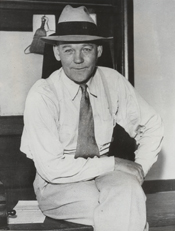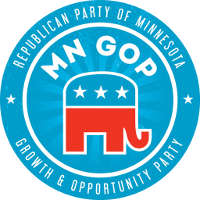
The 1924 United Kingdom general election was held on Wednesday 29 October 1924, as a result of the defeat of the Labour minority government, led by Ramsay MacDonald, in the House of Commons on a motion of no confidence. It was the third general election to be held in less than two years.
The first modern Farmer–Labor Party in the United States emerged in Minnesota in 1918. Economic dislocation caused by American entry into World War I put agricultural prices and workers' wages into imbalance with rapidly escalating retail prices during the war years, and farmers and workers sought to make common cause in the political sphere to redress their grievances.

The Grassroots-Legalize Cannabis Party is a political third party in the U.S. state of Minnesota created in 1986 to oppose drug prohibition. The party shares many of the progressive values of the Farmer-Labor Party but with an emphasis on cannabis/hemp legalization issues.

The United States Senate elections of 1924 were elections for the United States Senate which coincided with the election of Republican President Calvin Coolidge to a full term. The strong economy and Coolidge's popularity helped Republican candidates increase their majority by four, although several interim appointments had worsened their numbers since the 1922 election; as a result, the party achieved a net gain of only one seat since the previous voting cycle.

The 2002 Minnesota gubernatorial election took place on November 5, 2002 for the post of Governor of Minnesota. Republican candidate Tim Pawlenty defeated Democratic candidate Roger Moe and Independence Party of Minnesota candidate Tim Penny. Due to a state economy in recession and underwater approval ratings, Incumbent Independence Party Governor Jesse Ventura chose not to seek reelection.

Francis Henry Shoemaker was a Representative from Minnesota.

The 1924 Minnesota gubernatorial election took place on November 4, 1924. Republican Party of Minnesota candidate Theodore Christianson defeated Farmer–Labor Party challenger Floyd B. Olson.

The Independence Party of Minnesota, formerly the Reform Party of Minnesota, is a political party in the U.S. state of Minnesota. It was the party of former Minnesota Governor Jesse Ventura (1999–2003).

The 1924 United States presidential election in Montana took place on November 4, 1924. Voters chose 4 representatives, or electors to the Electoral College, who voted for president and vice president.

A general election was held in the U.S. state of Minnesota on November 4, 2014. All of Minnesota's executive officers were up for election as well as all the seats in the Minnesota House of Representatives, several state judicial seats, a United States Senate seat, all of Minnesota's eight seats in the United States House of Representatives, and several seats for local offices. A primary election was held on August 12, 2014, to nominate major political party candidates for partisan offices and candidates for nonpartisan offices.

The 1932 United States presidential election in Minnesota took place on November 8, 1932, in Minnesota as part of the 1932 United States presidential election.

The 1924 United States presidential election in Minnesota took place on November 4, 1924, in Minnesota as part of the 1924 United States presidential election. Voters chose twelve electors, or representatives to the Electoral College, who voted for president and vice president.

The 1912 United States presidential election in Minnesota took place on November 5, 1912, in Minnesota as part of the 1912 United States presidential election.

The 1920 Minnesota lieutenant gubernatorial election took place on November 2, 1920. Republican Party of Minnesota candidate Louis L. Collins defeated Independent challenger George H. Mallon and Minnesota Democratic Party candidate James P. McDonnell.

The 1916 Minnesota lieutenant gubernatorial election took place on November 7, 1916. Republican Party of Minnesota candidate Thomas Frankson defeated Minnesota Democratic Party challenger Julius Thorson, Socialist Party of Minnesota candidate Andrew Hanson, and Prohibition Party candidate L. A. Simonson.

The 1912 Minnesota lieutenant gubernatorial election took place on November 5, 1912. Republican Party of Minnesota candidate J. A. A. Burnquist defeated Minnesota Democratic Party challenger Winn Powers, Public Ownership Party candidate D. M. Robertson, and Prohibition Party candidate George H. Andrews.

The 1910 Minnesota lieutenant gubernatorial election took place on November 8, 1910. Republican Party of Minnesota candidate Samuel Y. Gordon defeated Minnesota Democratic Party challenger Merrill C. Tifft, Public Ownership Party candidate Lewis M. Ayer, and Prohibition Party candidate J. D. Engle.

A general election was held in the U.S. state of Minnesota on November 6, 2018. All of Minnesota's executive officers were up for election as well as all the seats in the Minnesota House of Representatives, several judicial seats, a United States Senate seat, Minnesota's eight seats in the United States House of Representatives, and several seats for local offices. Special elections were also be held for a Minnesota Senate seat and Minnesota's Class 2 U.S. Senate seat. A primary election to nominate Republican and Democratic–Farmer–Labor (DFL) candidates and several judicial and local primary elections were held on August 14, 2018.


















